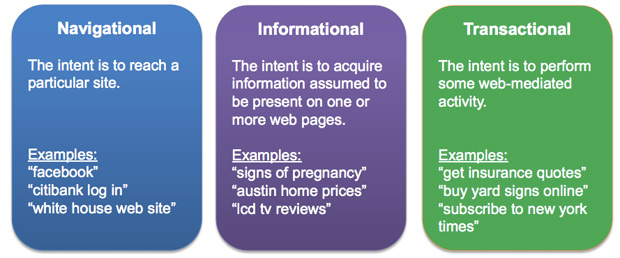How To Carefully Choose & Use Keywords For Your B2B PPC Campaigns
The first step to picking the right keywords for B2B search advertising is defining your audiences. Doing this first will help keep you from bidding on search terms that are superficially related to your offering, but don’t actually indicate any relevant search intent. It will also give you ideas about what your audience can be searching for related to your offer. These ideas are typically ones you won’t come up with by just jotting down keyword ideas off the top of your head.
But even when you know who you’re targeting, you still have to be careful. This is because it’s in the search platforms’ best interest to make it really easy for you to cast too wide a net in your advertising; which is exactly what you’ll do if you’re not careful. So, it’s ultra-important that you know exactly what you’re doing when you go to pick the keywords you believe your audience is searching with.
Always remember, you don’t just want traffic. You want the right kind of traffic. If you don’t get it, you run the danger of not only wasting ad spend, but convincing yourself that PPC can’t work for you.
Get the keyword juices flowing
When it comes to compiling keyword ideas, the names of your products or services are obvious. Of course, that’s where you’ll start. But, make sure you don’t forget that people don’t just search for your products and services. They also might not search for them in exactly the same way you are thinking. If you need some triggers to get the keyword juices flowing, here are some places you might want to look…
- Your buyer personas. Sketching out your customers’ goals, challenges, pain points, etc. will clue you in to how they may be searching and what they may be searching for. As you know, you use search engines to ask questions and find information, not just to look for something to buy.
- Your content. What content have you put out that’s resonated with your customers? What kind of language do you use?
- Surveys. What kinds of language do your customers use when they talk about your products and services?
- Competitors websites, ads and marketing materials. In what ways are your products similar and different? Can you target those similarities and differences in keyword choices?
- The buyer journey. How do searches change as people gather more information?
Organizing your ideas
As you lay out your keyword ideas, make sure you stay organized. Probably the most common approach to developing your keyword targets is to take shorter core phrases and use them as themes to build around. For example, if I’m offering devices for large buildings to save on energy costs, I might lay out keyword themes like energy savings, energy management, etc. After I do this, I can start adding on unique qualifiers that signal more intent from searchers that search for them. Words like building, facility, hotel, etc.
Once you’ve laid out your keyword options, you’ll want to segment them in at least 2 ways – by purchase intent (are they ready to purchase?) and audience intent (B2B or B2C?).
In general, keyword searches are known to break down into these 3 purchase intent types…
As you might imagine, classifying your keywords under these types makes sure you’re organized with what you present to your target audience. It’s much too often that I see advertisers offer their products on searches where people are looking for information. In search, you’ve got to give the audience what they’re looking for.
Choosing your priorities
Just like in B2C, the longer the query, the more intent is revealed. The more intent that’s revealed, the easier it will be to classify the keyword and make sure you present the right messaging and offer.
As Robert Brecht said in his post about this subject…
In B2B search marketing, it’s often the (long) tail that wags the dog.
It’s not that shorter keyword phrases can’t work for you, it’s that you have to be much more careful with them. For example, if I choose the keyword energy savings, here’s a look at some of the searches my ads may show up for…
Not exactly what I’m offering. These types of one and two-word phrases MAY contain searchers that are in my target audience, but I’m not real sure what % of them are. It’s likely very low. Therefore, these types of keywords typically shouldn’t be your top priorities. Write them down, keep them in a safe place, but don’t lead with them. The long-tail is what you’ll initially prioritize with your budget.
With that said, don’t forget about them either. Even though these keywords will have a mix of B2B and B2C customers using them, you don’t want to abandon them. They still have some of your target audience and they tend to be more top-of-the-funnel searchers as well. You just want to treat them differently in your budgeting, bidding, ad messaging, etc. You typically don’t want to bid as much as your B2B-only keywords, and you want to pre-qualify users to only click on your ads if they’re B2B customers. If you don’t get exposure early on in the process, you give the competition a leg up on building relationships with the customers before you get a chance to.
Here’s a nice visual from the Kissmetrics blog of how different types of keywords fall within the purchase intent categories from above. The farther away from the center, the more likely it is that the query is informational and not transactional in nature…
Now that you’ve classified and segmented your keywords by purchase intent, you should have no trouble recognizing the appropriate ad messaging and content to serve for each of them.
(Hint: if you do Google searches on the phrases, the results will give a good idea of the intent of the searchers.)
Making sure you target the right people
Since B2B targeting is typically niche compared to B2C, and transactions are 10s of thousands to millions of dollars, it’s OK if the keywords you choose to target don’t have much volume. You’re not so much after volume as you are after the right people. Since clicks on B2B keywords are typically more expensive than B2C, we should be placing a higher premium on getting the “right” clicks than B2C advertisers might.
Notice the trends in the example below. You can see that as queries get more specific, generally competition goes up and bids go up as well. Sure, the broader term energy management will be cheaper, but there’s a good reason for that. It’s because there’s a bunch of B2C searchers looking for information; while the more specific examples are more likely to be B2B searchers looking for solutions (the people you want!).
Consider who’s searching
Each company role will be searching uniquely given their level of knowledge of the product/service, as well as what they care about related to it. So, if I’m offering a system for large buildings to save on energy costs, a building manager may search for building energy savings, while a building engineer may search building energy management platform. The manager is wondering how to save money, while the engineer is more likely already convinced of how they’ll save money and is simply looking for the best solution for them.
So make sure you think about keyword ideas from everyone’s perspective that might be involved in the research and purchase process. As you can see, this should affect the messaging you serve them.
Special categories to cover
Keywords that relate to your products and services are obvious. But there’s other categories and specifications to remember to make sure you’re covering all your bases…
- Problems. Since I know you’ve already sketched out the buyer personas you’re going to target :), you can pull keyword ideas from there. These tend to be more top-of-the-funnel keywords where you’ll likely be more successful offering content to establish an initial connection with prospects.
- Acronyms. Sometimes acronyms of your product/service will get more volume than their names. For example, EMS can be short for energy management system. Including them will make sure you hit all the relevant searches you want.
- Applications/Markets. Appending specific applications to core keyword terms will help you be able to match up more relevant ads to searches. For example, targeting “hotel energy management system” and “school energy management system” is going to allow me to write ads directly related to those applications and get me better results. (Bonus if your landing page is that targeted as well!)
- Part/Model Numbers. The same thing goes for specific part or model numbers. If they put it in their query, you should put it in your ad.
- Solutions. When searchers append words like solutions, vendor, company, provider, etc. to your core keyword terms, they’re on the hunt and looking for what you’re offering. Make sure to have them covered.
- Competitors. You’ll want to separate competitors names that are attached to your core keyword terms because they can be harder to make profitable. That doesn’t mean you can’t or shouldn’t target them, but that they should be treated differently than the rest of your keywords.
Pay attention to your match types
Teaching you keyword match types is beyond the scope of this post, but make sure you understand how the keywords and match types you choose affect how your ads will be matched to search phrases. In my energy savings example above, I open myself up to the danger of showing for those keyword examples if I use broad or phrase match.
This doesn’t mean you should never use them, just that you should have a purpose in using them and have a strategy for how you’re going to control them.
Remember, the most important aspect of PPC is control. Use the right match types in the right context to make sure you do just that.
Don’t forget to exclude
In just the same way the above categories will signal searchers that are more relevant, they can also do the opposite. There may be applications, model numbers, etc. that you don’t offer. If that’s the case, make sure to exclude them from targeting so you don’t pay for those irrelevant clicks.
There are also common terms that all B2B advertisers generally want to exclude. Many people have compiled extensive lists like this one that you can look through for good terms to exclude from your campaigns from the beginning. This will filter out those seeking things like jobs, reviews, phone numbers, free stuff, etc.
After you’ve thoroughly brainstormed and organized the keywords your audiences will be searching for, it will make it much easier to deliver the right messaging and content to them. Now you have a much better chance to make your PPC campaigns successful.







